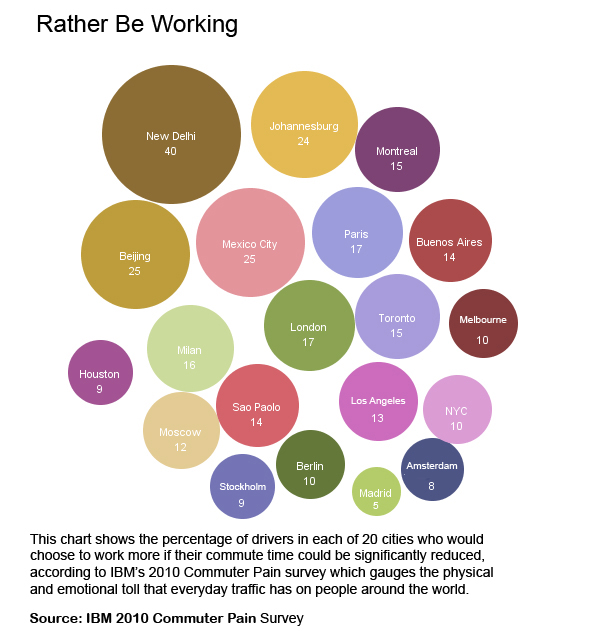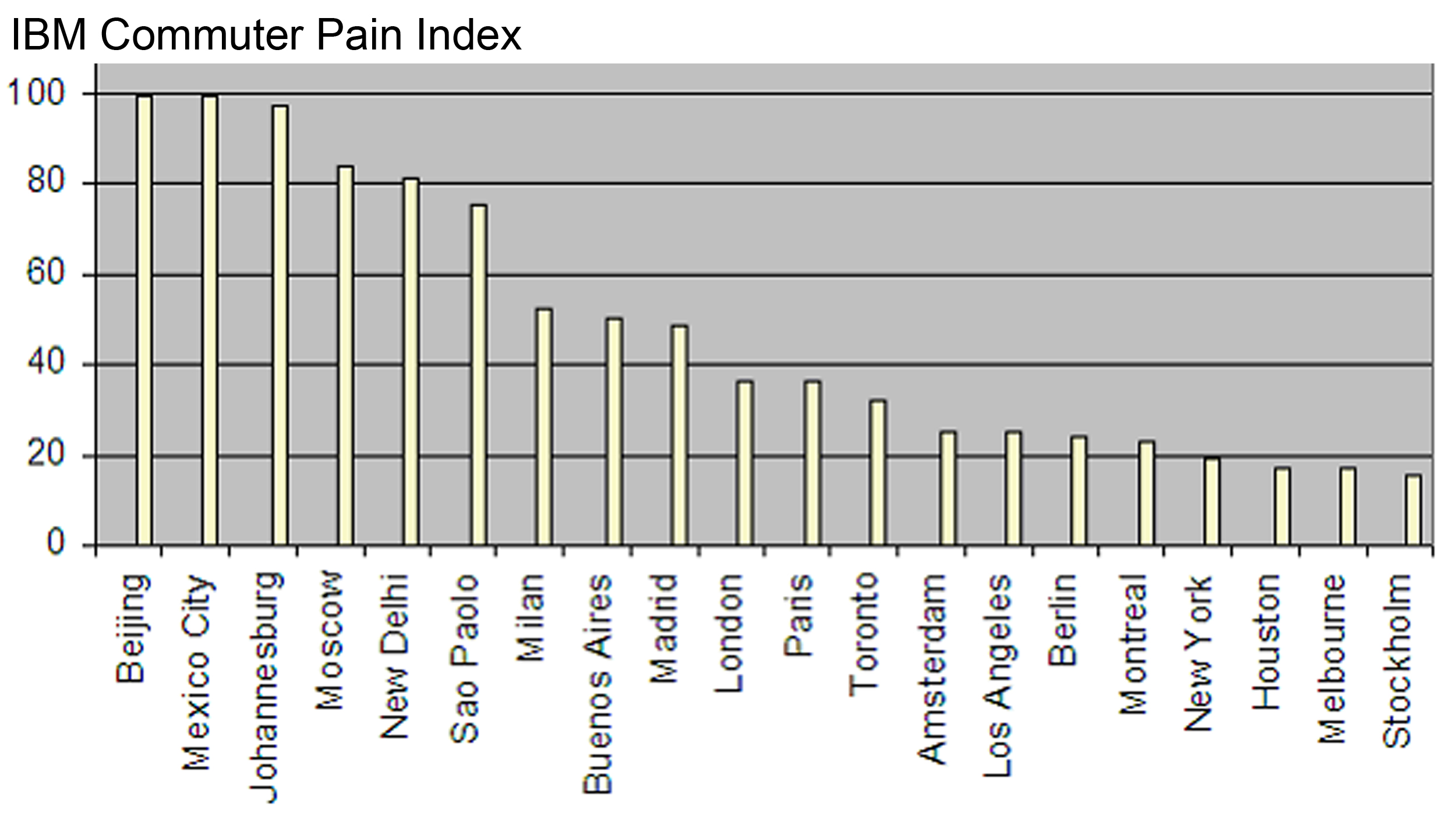IBM
Forward
Traffic. It is maddening. It is protracted. It is engulfing. It is increasingly harmful – by every conceivable measure – to individuals and businesses alike. Unfortunately environmental concerns, rising gas prices, and an economic slowdown have done little to weaken the chokehold of traffic on the life of cities.
IBM conducted a survey of adult drivers in twenty major cities around the world – repeating similar surveys done in the U.S. alone in May 2008 and August 2009. This survey, intended to gather drivers’ opinions about local traffic and related issues, was conducted in native languages in Amsterdam, Beijing, Berlin, Buenos Aires, Houston, Johannesburg, Los Angeles, London, Madrid, Melbourne, Mexico City, Milan, Moscow, Montreal, New Delhi, New York, Paris, Sao Paulo, Stockholm and Toronto. There were 8,192 responses in the final data set – at least 400 from each city. IBM was not mentioned as a sponsor of the survey, whose results have a 2- point margin of error overall, and a 5-point margin of error when comparing cities.
Among those interviewed 30% of respondents reported increased stress from traffic; 27% increased anger; 29% reported that traffic has harmed their performance in work or school; and 38% reported having cancelled a planned trip due to anticipated traffic. We know the enormity of this problem – both in its objective and subjective dimensions. Traffic congestion does not just add stress to our already-stressful lives; it impedes economic development while increasing air pollution.
The question now is: what is to be done? More fuel efficient cars, more public transportation, more ridesharing, more telecommuting are all good steps – but hardly enough. And it is clear that the traditional remedies for road congestion – adding a lane or building a new road – have proven to be just a temporary fix before congestion returns. Technology can help. For the first time in history, digital and physical infrastructures are converging. As a result, we are now able to understand large, complex systems that previously resisted investigation – systems as diverse as waterways, oilfields, and transportation networks.
Transportation officials are now able to collect real time data on traffic conditions and instantaneously analyze that data and deploy strategies that minimize delays and congestion. Thanks to the proliferation of data-gathering devices on our roads and recent advances in business analytics – large volumes of data can be quickly synthesized and actionable insights extracted that allow for active management of our transportation networks to keep people moving more efficiently.
We hope that this report will stimulate debate, thinking, and ultimately solutions to this most perplexing and painful problem: traffic. Lastly, thanks again to the 8,192 commuters who troubled to share their woes!
“If all the cars in the United States were placed end to end, it would probably be Labor Day Weekend.”
– Doug Larson
“Life is too short for traffic.”
– Dan Bellack
Download full report (PDF): The Globalization of Traffic Congestion
Tags: Amsterdam, Beijing, Berlin, Buenos Aires, Commute, Houston, IBM, Johannesburg, London, Los Angeles, Madrid, Melbourne, Mexico City, Milan, Montreal, Moscow, New Delhi, New York, Paris, Sao Paulo, Stockholm, Toronto, Traffic








 RSS Feed
RSS Feed